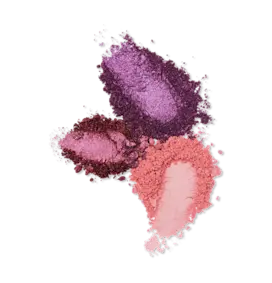MoCRA Puts a New Look on Cosmetics Regulations: What’s Required, and How Can a PLM System Help?
MoCRA Puts a New Look on Cosmetics Regulations: What’s Required, and How Can a PLM System Help?
MoCRA Puts a New Look on Cosmetics Regulations: What’s Required, and How Can a PLM System Help?
31 Aug 2023
John McCurdy
It’s official—cosmetics industry regulations in the U.S. are getting a makeover.
The Modernization of Cosmetics Regulation Act of 2022 (MoCRA) was signed into law by President Joe Biden on December 29, 2022, and with that we are headed into a new era of government oversight and authority for a market that up to now has lacked a cohesive system of controls.
Not since the Fair Packaging and Labeling Act of 1966—and before that the Federal Food, Drug and Cosmetic Act of 1938—had Congress and the President together passed legislation that affected cosmetics companies specifically. Now, though, that’s history, as is the Voluntary Cosmetic Registration Program (VCRP).
That’s because facility and product registration are now mandatory, and that’s just one of the new requirements that your business could be obligated to prove compliance with. The clock on enforcement is ticking, too—the Food and Drug Administration (FDA) has already published its draft guidance on that component of the law in advance of finalized rulings.
To get fully up to speed on all that MoCRA entails, what your company can do to prepare for the bill’s phased implementation and how product lifecycle management (PLM) software can aid your efforts check out our whitepaper: Navigating MoCRA: A Deep Dive into the New Requirements and How PLM Software Supports Compliance.
For now, get a high-level understanding of the new regulations, enforcement timeframe and the features of PLM solutions that facilitate regulatory compliance with this quick read.
MoCRA Applicability: One Major Exemption
As far as which organizations must comply with MoCRA’s new requirements, the reach of the legislation is considerably far, affecting all U.S. manufacturers, packagers and distributors of cosmetic products. Additionally, international businesses that manufacture, package or distribute their items in the U.S. are also subject.
The major exemption is for small businesses with less than $1 million average annual turnover over the past three years. Those companies will not be required to register their facilities or products, nor will they need to prove adherence to the FDA’s Good Manufacturing Practices (GMPs) for the cosmetics industry.
That said, even if an organization meets the above criteria, it will still be obligated to meet all requirements of MoCRA if it handles:
Products that are intended to come into contact with the mucus membrane of the eye
Products that are injected
Products that are intended for internal use only
Products that alter appearance for more than 24 hours and are not normally manually removed
The New Requirements: Making Safety a Priority
Before covering the primary components of the new law, we first need to establish the concept of a “responsible person” as laid out in the text of the legislation. Here, it means “the manufacturer, packer or distributor whose name, address, phone number and electronic contact information appear on product labels.”
Thus, while the term implies it would be an individual, it is in actuality the business that is marketing the item. However, you may find it ideal for a single well-qualified professional (or select team) at the address specified to serve as the point person on MoCRA compliance and communications with the FDA—that way, they can focus on that responsibility and dedicate sufficient time to become familiar with it.
Now, for the new requirements—all of which focus on product safety and accountability:
Mandatory adverse event reporting is required within 15 days of the incident. These events are those that result in death, infection, disfigurement and other severe health effects. See Sec. 605 of the bill for more details.
Adherence to GMPs is compulsory. See Sec. 606 for more details.
Cosmetics manufacturing facilities and products must be registered with the FDA. Additionally, facility registration must be renewed every two years. See Sec. 607 for more details.
Product safety substantiations must be documented and readily available. See Sec. 608 for more details.
All cosmetics products must bear a label that includes the responsible organization’s domestic address, phone number and electronic contact information, as well as a disclosure of any fragrance allergens present in the product. See Sec. 609 for more details.
The FDA now has the authority to access and copy business records associated with an item if there is a reasonable belief it is adulterated, misbranded or could cause a serious health consequence. See Sec. 610 for more details.
The FDA now holds mandatory recall authority should the administration determine that there is a reasonable level of probability that a cosmetic product is adulterated, misbranded or could cause a serious health consequence. See Sec. 611 for more details.
Beyond these rules, the FDA has also committed to providing a ruling on standardized asbestos testing methods for products containing talc within one year of the law’s passage (see Sec. 3505), as well as additional guidance on the safety risks of using perfluoroalkyl and polyfluoroalkyl (PFAs) in cosmetics products within three years of the law’s passage (see Sec. 3506).
MoCRA Enforcement Timeline: A Phased Approach
While the FDA is definitely aware that compliance with MoCRA regulations will require time and effort on the part of subject businesses and is thus implementing enforcement over time, today’s as good a day as any to get started, as these dates will be here before you know it.
As of July 1, 2024, all applicable businesses will need to register their facilities and submit product listings.
As of December 29, 2024, all applicable businesses must disclose known allergens in their products and provide contact information for their responsible person.
As of December 29, 2025, all applicable businesses must provide proof of adherence to GMPs.
Your Ally in Compliance: A Cosmetics PLM From Aptean
Industry-specific PLM systems—like Aptean PLM Lascom Edition—are packed with functionalities that can support your cosmetics company’s compliance. For starters, there’s electronic document management (EDM), which can be used to create and maintain a fully digital repository of your product details, safety substantiations and adverse event reports, as well as additional necessary FDA forms.
Then, there are advanced formulation tools that allow your research and development team to flexibly and precisely tune in product components and proportions in line with new standards. Meanwhile, manufacturing process management tools can empower your teams to establish procedures consistent with GMPs for greater assuredness on that front.
Aptean PLM even has its own dedicated compliance module, which can assist in ingredient statement creation, allergen screening and the generation of other claims and certifications. Our solution architects designed the system to handle the highly complex challenges of the cosmetics space, and our customers appreciate that the software is tailor-made for their company’s sector.
We also offer our cosmetics PLM via flexible cloud deployments on the Software as a Service (SaaS) model for greater scalability, stronger cybersecurity, enhanced data protection and broader accessibility. Plus, Aptean sets itself apart as a provider by taking a collaborative approach to implementation and carrying that mindset forward for long-term partnerships with our clients.
Now, if you’re ready to learn more about Aptean PLM and how it can help your organization meet MoCRA’s new requirements, contact us today. Feel free to request a personalized demo, as well.
And don’t forget to download our whitepaper Navigating MoCRA: A Deep Dive into the New Requirements and How PLM Software Supports Compliance for even more information on the subject.
Related Content





Speak with a cosmetics industry expert
Optimising your product lifecycle takes more than just any PLM. It takes one developed by experts who understand the day-to-day challenges you face. Want to see PLM software for cosmetics in action? Schedule a live demo today.




